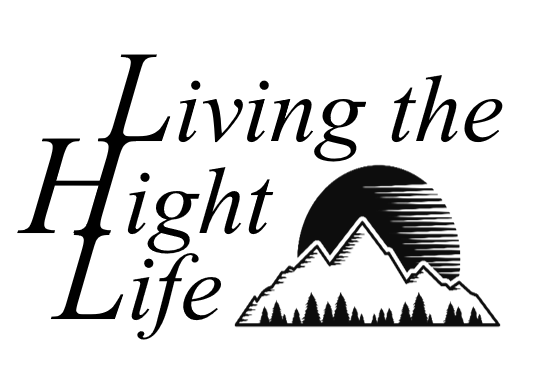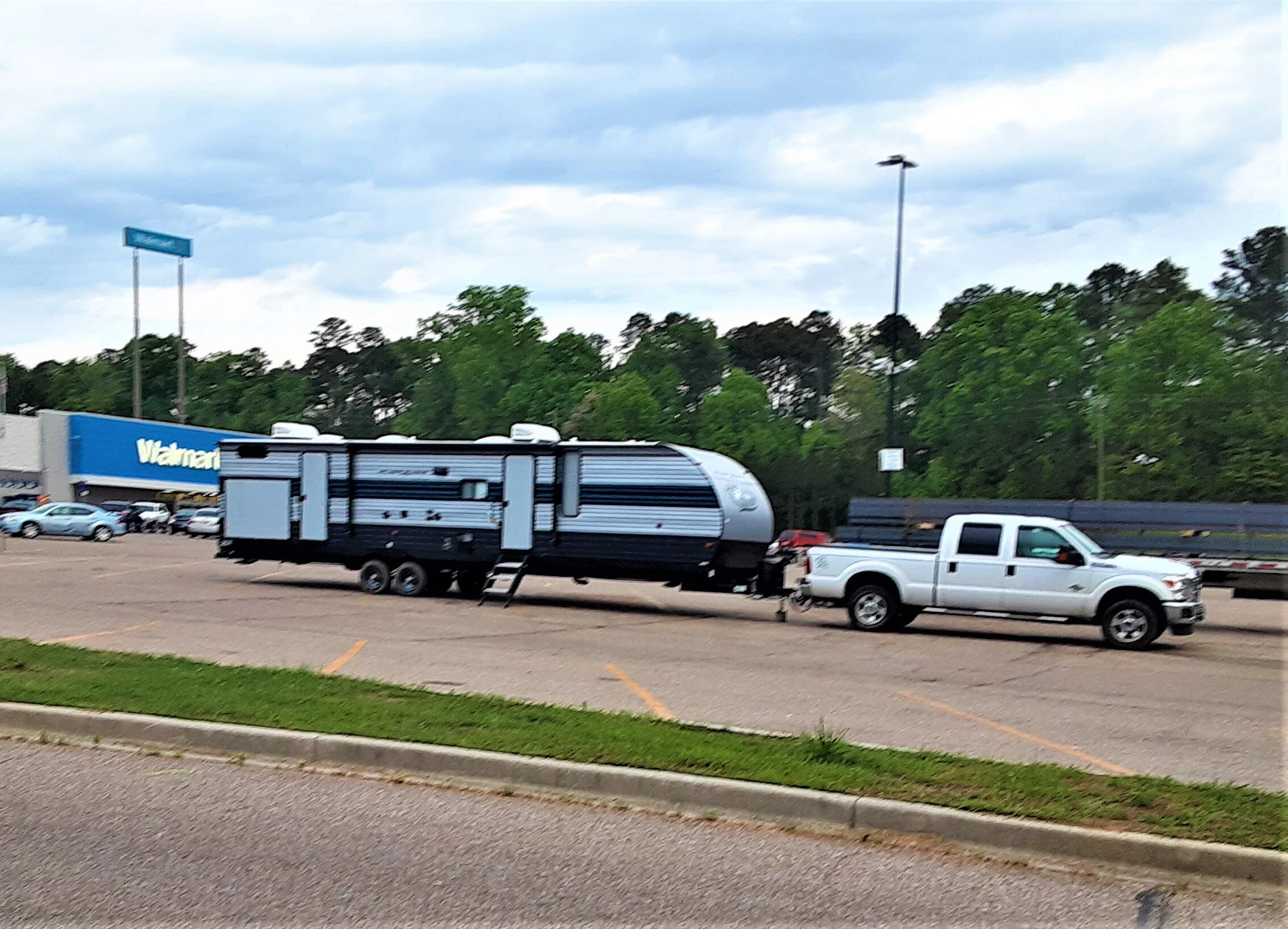Boondocking 101: What, How, Why
Note: This post may contain amazon affiliate links. The links are posted to show you exactly what item I am referring to. If you use this link and buy any item we may make a small commission. You do not have to use our link to purchase any items, but if you do, thank you.
Let’s talk boondocking 101. What is it? How do I do it? Why would I do it?
I am going to do a brief overview, and then go into greater detail on other posts.
So first off, lets really bring it down to the basics.
What is boondocking?
Boondocking is a term that indicates you are camping in your RV, without hooking up to power or water.
Now, don’t think this means you can’t have power or water while boondocking.
You can, but you can only have what you bring with you. For example, you may have solar panels or a generator for power and extra jugs or a water bladder for water.
Before we move on, lets cover some boondocking adjacent terms that might get thrown around on here and in RV forums.
Wall-docking
This is boondocking in a Walmart parking lot. It is usually done when you just need a quick overnight place to stop. It is definitely not a favorite of ours, but it works in a pinch. We have done it when our 1 year old was absolutely over riding in his carseat, it was getting dark, and we were still an hour away from our campsite.
Mooch-docking
This is boondocking on someone else’s property, usually a family or friend. With moochdocking you normally do not pay anything to stay, so you are mooching off of them. We have done this at my sister’s house before hitting the road.
Boon-barreling or Cracker-docking
This is boondocking at a Cracker Barrel. Most Cracker Barrels have specific RV parking. If you call them up and ask, they may let you stay there overnight. This type of boondocking is preferred to wall-docking, because Cracker Barrels are not 24/7 so it is usually quieter than Walmart.
Some other places that you can possibly dock at are outdoor retailers like Cabela’s or Bass Pro, RV specific stores like camping world, truck stops, rest areas, or Travel Information Centers, like the one in Amarillo, Texas.
How do I boondock?
This seems simple, you set up your RV and live in it without hooking up, but there is more to it than that.
First, you have to find a location to set up in.
We prefer Bureau of Land Management (BLM) land, US Forest Service (USFS) land, and National Forests. These locations are generally free to stay in and have a 14 day stay limit, some locations may differ, so it is important to always double check for yourself before staying somewhere.
(We will do a separate post on how we find our next location. I will link it here once it is posted so stay tuned.)
Second, gather your supplies for boondocking.
Like I said earlier, just because you are boondocking does not mean you are living in the dark ages. It is okay to use power and water.
How you go about having power or water is the important part.
We have a generator and solar for power. Propane for cooking and heat. Water in our freshwater tank, plus 4 6-gallon jugs and 1 7-gallon jug, of back up water.
Generators tend to be a touchy subject in boondocking groups.
Some boondockers hate them because they can be noisy, but we have a Predator 3500 invertor generator that is relatively quiet.
We only use it when needed and we don’t camp near any other campers.
If you are near other campers, be respectful and don’t run your generator at 2 a.m. or continuously 24/7.
6 a.m. until 10 p.m. is generally the accepted time to run generators.
Solar power is a subject that will need its own post, but briefly we have 450 total watts of solar panels. (4 100-watt panels and 1 50-watt panel that came with our RV)
We also have an inverter charger that is a converter and inverter in one. A converter allows the battery to charge off of the solar panels and an inverter allows us to run our electrical outlets.
Here is a tip that I did not know before starting this lifestyle, outlets do not work just because you have solar or batteries. You have to be running your generator, be plugged in to shore power, or have an inverter on your solar system to run your outlets.
Propane is important to most RVers, but especially to boondockers.
It is our cooking and heat source.
We carry 3 20lb propane tanks with us while boondocking. We do not go through 3 20lb tanks, but it is better to have more than you need.
Weather can be unpredictable sometimes and when we got snowed on in New Mexico (more than once) the extra propane was essential to heat the RV.
I know a lot of people rave about Instapots, Air Fryers, and Crockpots. I personally love Air Fryers and Crockpots, but while boondocking these are not feasible.
The way Kenneth explained it to me is, anything that heats draws a lot of power. This also means hair dryers, hair straighteners, coffee pots, space heaters, electric fireplaces, etc.
Could we in theory run one of these items on our generator or solar, yes, but the power draw to us is just not worth it.
Water.
It is essential to life. You have to have it. So, how do you do that if you are not hooked up to a water source.
Simple, you bring it with you.
As I mentioned earlier, we have 5 additional jugs of water that we carry. Some boondockers have twice that amount. Why?
It is easier to take jugs to a water source, fill them, then bring them back and dump them in your RV then it is to pack up your home, go to a water source, fill up, and then go back to where you were parked.
Not to mention, some boondocking sites are in high demand, so it may not be there when you get back.
We got our jugs at our local Walmart. I appreciate them because they are easy to move out of the way or carry in the truck bed.
Some boondockers use a water bladder instead. So, they just have this huge water storage area. It can’t really be moved or stuck in a spot out of the way. It is just there, but if you have that extra space, go for it.
It is also important to conserve water and not waste a single drop, while boodocking.
Showers and washing dishes become a little tricky. You can always get more water, but you only have so much room in your waste tanks.
So unless, you are going to carry a poop wagon. Conservation is key!
A poop wagon is exactly what it sounds like. It is a tank on wheels that you can empty your black and grey tanks in to and then go dump it, without having to take your RV to the dump station.
Some of that sounds a little off putting.
So, why do we boondock?
Lets just get the money out of the way, we don’t pay for our site.
The boondocking locations we choose are completely free.
But there is so much more to it than that.
The sites we are able to stay in, while boondocking, are some of the most beautiful locations.
We have been in the mountains of New Mexico and in the Kansas prairie.
We have been 100% isolated from others and we have been near some popular locations.
We can wake up to birds chirping and go to sleep listening to coyotes howling.
I give up the luxury of full hookups, but I more than make up for it in the pure beauty I get to see every single day.
To us it is worth it, to you it may not be.
And, that is okay.
Not every RVer is a boondocker.
We are all different, and that is okay.
If you are a boondocker, or think you may be, keep an eye out for more boondocking 101 posts. We will be going in-depth on cooking, dishes, showering, laundry, etc.
If there is something you want to learn about, head on over to our social media pages and let us know.
We would love to hear from you.
Until then, we will continue to enjoy our lifestyle,
and as always,
We are Living the Hight Life.





